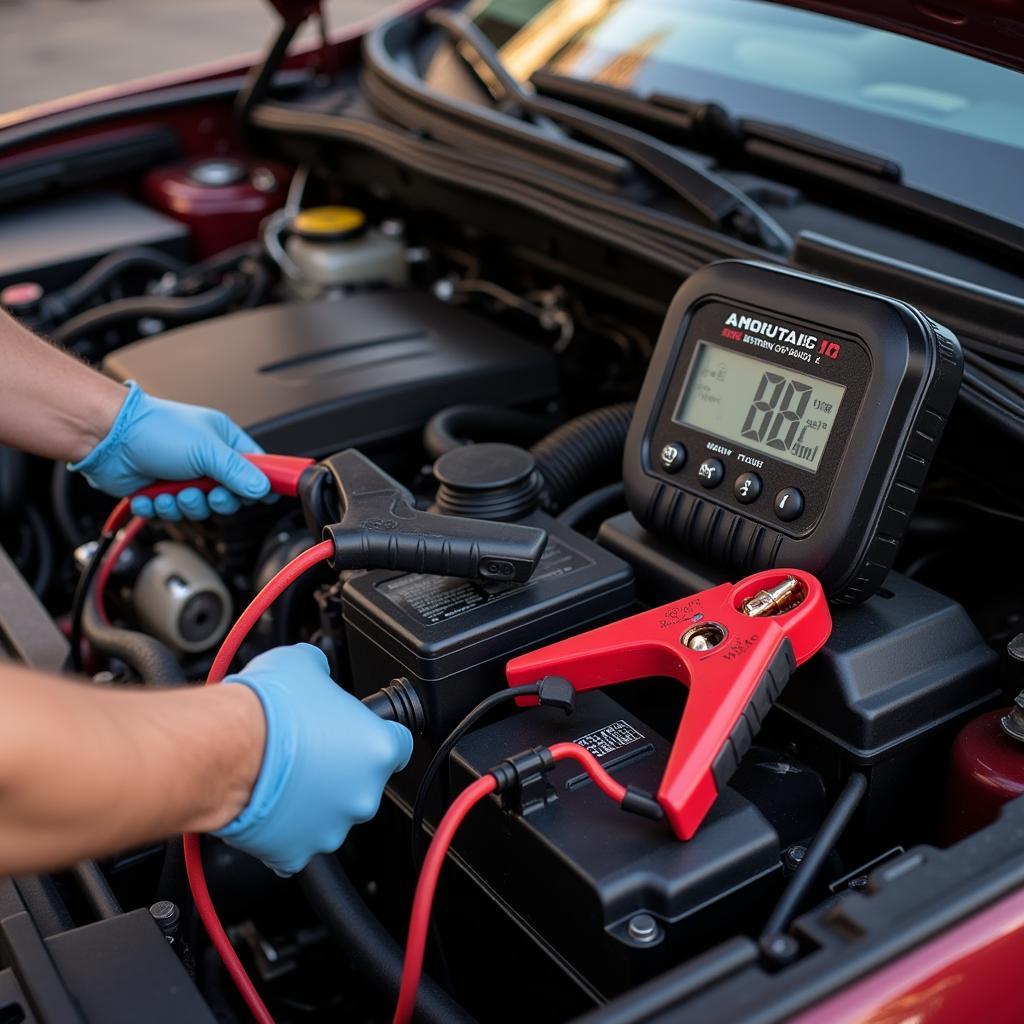Few things are more unnerving than driving down the road and realizing you have no idea how fast you’re going. A malfunctioning speedometer isn’t just an inconvenience; it’s a safety hazard. If your car’s speedometer has decided to take an early retirement, don’t panic. This comprehensive guide will walk you through the common causes, troubleshooting tips, and possible solutions for a “Car Problems Speedometer Not Working” situation.
Why is My Speedometer Not Working?
Before we dive into solutions, it’s essential to understand why your speedometer might be on strike. Several culprits could be responsible, ranging from simple fixes to more complex electrical issues.
Here’s a breakdown of the most common causes:
-
Faulty Speed Sensor: The most common culprit is a malfunctioning speed sensor. This sensor, typically located on the transmission, sends signals to the speedometer based on the rotation of your wheels. A faulty sensor won’t send the correct information, resulting in inaccurate readings or a complete speedometer outage.
-
Damaged Speedometer Cable: In older vehicles with mechanical speedometers, a cable connects the transmission to the instrument cluster. This cable can become worn, disconnected, or broken, preventing the speedometer from receiving the necessary information.
-
Electrical Problems: Modern cars rely heavily on electrical systems, and your speedometer is no exception. A blown fuse, damaged wiring, or a faulty instrument cluster can all disrupt the flow of information to your speedometer.
-
ECU Malfunctions: The Engine Control Unit (ECU) is your car’s brain, managing various systems, including the speedometer. While rare, a faulty ECU can disrupt speedometer function.
Troubleshooting a Speedometer Not Working
Now that you have a better understanding of the potential causes let’s explore some troubleshooting steps you can take:
-
Check the Basics: As with any car trouble, start with the obvious. Ensure your vehicle’s wiring connections near the speedometer and transmission are secure. Inspect the fuses related to the speedometer and instrument cluster for any signs of damage.
-
Inspect the Speed Sensor: If you’re comfortable with basic car maintenance, you can visually examine the speed sensor. Look for any physical damage, debris, or loose connections. If you suspect a faulty sensor, it’s best to have it tested by a qualified mechanic.
-
Examine the Speedometer Cable (Older Cars): For vehicles with mechanical speedometers, carefully inspect the cable connecting the transmission to the instrument cluster. Look for any kinks, breaks, or disconnections. Replacing a damaged cable is usually a straightforward process.
-
Consult a Professional: If your troubleshooting efforts prove fruitless or you suspect a more complex issue like electrical problems or ECU malfunctions, it’s time to call in the experts. A qualified mechanic with diagnostic tools can pinpoint the root cause and recommend the appropriate repair.
Can I Still Drive My Car If the Speedometer Is Not Working?
While it’s technically possible to drive a short distance with a broken speedometer, it’s highly discouraged and potentially dangerous. Driving without knowing your speed increases the risk of speeding tickets and, more importantly, accidents.
If you must drive a short distance to a mechanic, take extra precautions:
-
Drive Cautiously: Be extra vigilant and drive defensively. Maintain a safe following distance and be aware of your surroundings.
-
Use Alternative Speed Indicators: Pay close attention to your RPMs and use landmarks or GPS navigation to estimate your speed.
-
Get It Fixed ASAP: Don’t delay getting your speedometer repaired. A functioning speedometer is crucial for your safety and the safety of others on the road.
Tips for Preventing Speedometer Problems
While not all speedometer issues are preventable, some proactive measures can help keep your speedometer accurate and reliable:
-
Regular Maintenance: Follow your car’s recommended maintenance schedule, which includes inspections of vital components like the speed sensor and wiring.
-
Address Warning Signs: If you notice any unusual fluctuations in your speedometer readings, address them promptly. Early detection can often prevent more costly repairs down the line.
-
Avoid DIY Repairs Unless Experienced: Unless you’re confident in your mechanical skills, leave complex repairs to the professionals. Improper repairs can worsen the issue or create new ones.
Speedometer Not Working? Autotippro Can Help!
Dealing with a malfunctioning speedometer can be stressful, but understanding the potential causes and taking the right steps for diagnosis and repair can get you back on the road safely.
If you’re experiencing [brain box car problems] or other issues related to your vehicle, don’t hesitate to reach out to the experts at Autotippro. Our team of experienced technicians can diagnose and repair [car icm problems], including speedometer malfunctions, ensuring your vehicle is safe and roadworthy.
Need Help With Your Car’s Speedometer?
Contact AutoTipPro today at +1 (641) 206-8880 or visit our office at 500 N St Mary’s St, San Antonio, TX 78205, United States. We’re here to help you get back on the road with confidence.






Leave a Reply